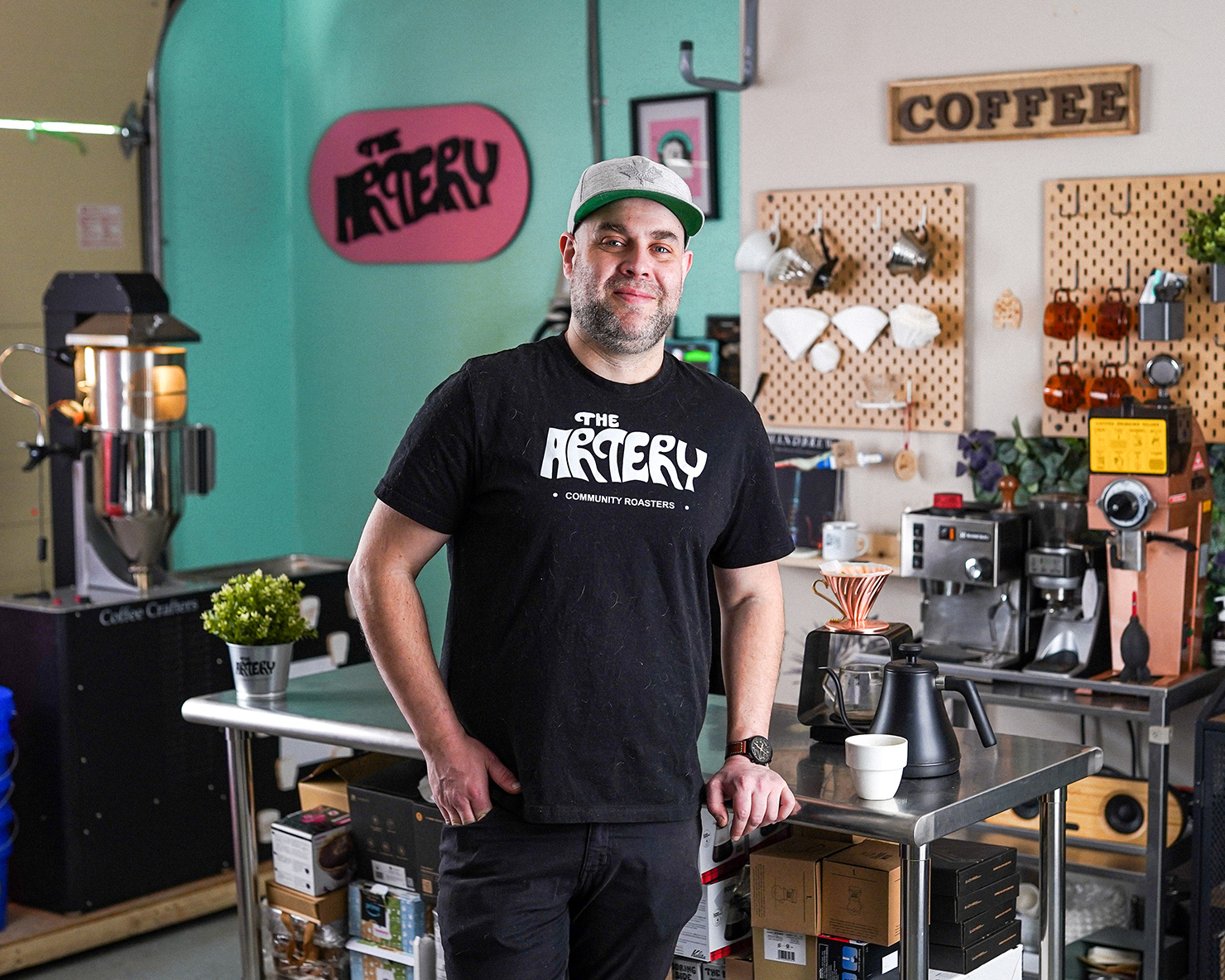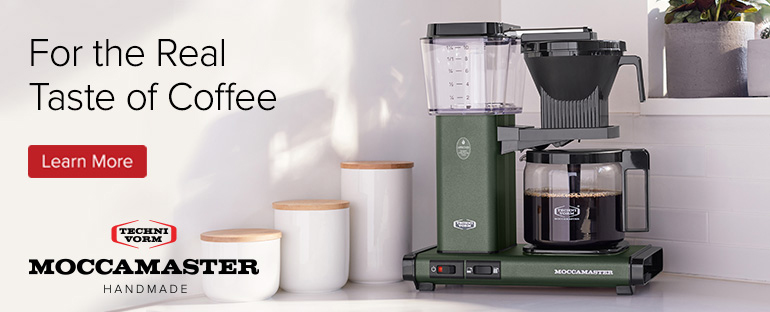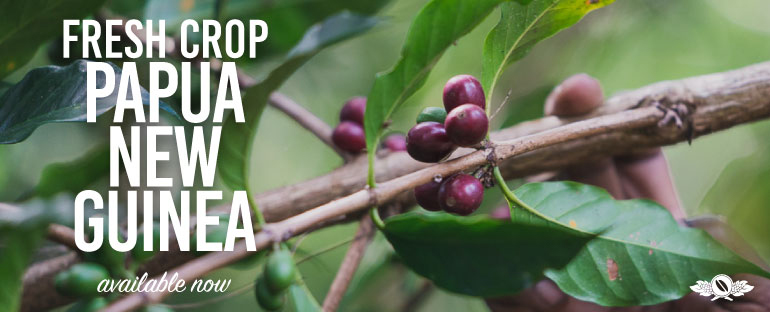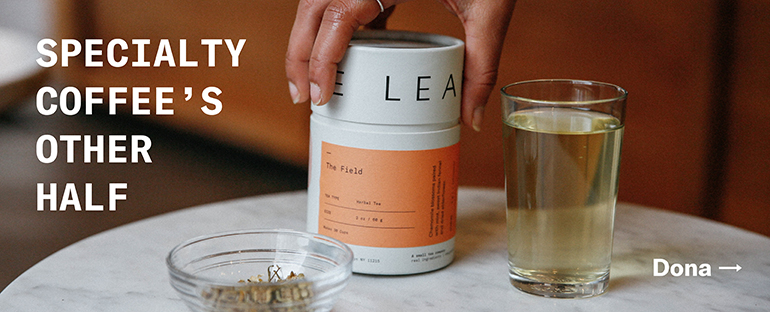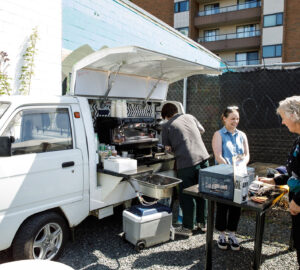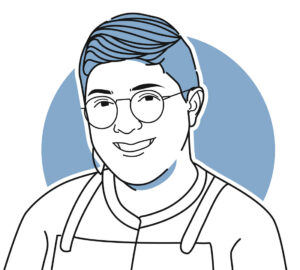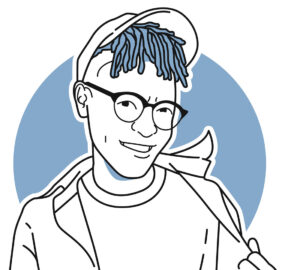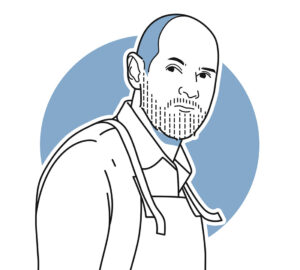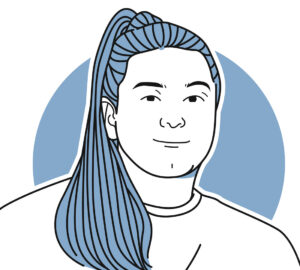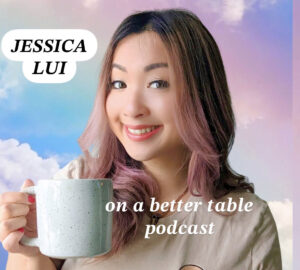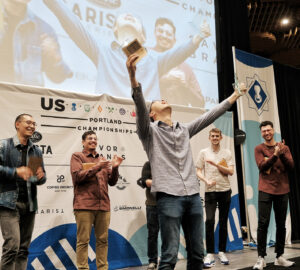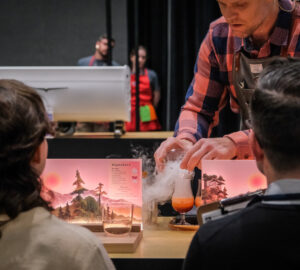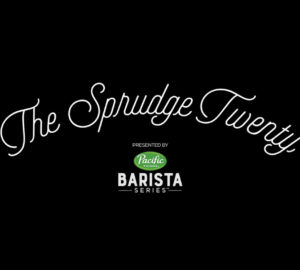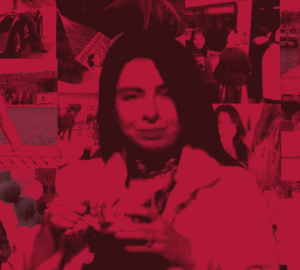Welcome to The Sprudge Twenty Interviews presented by Pacific Barista Series. For a complete list of 2022 Sprudge Twenty honorees please visit sprudge.com/twenty.
Will is my amazing boss and owner of The Artery Community Roasters located in Ottawa. He employs people with disabilities and believes in making sure we are paid a fair wage.
He combined his passion for roasting and his love of helping people to create an amazing small business that is making difference in the lives of his employees, farmers, and the community. Will has made it his mission to educate and bring awareness to disabilities and accessibility, and push for inclusion and get other businesses on board.
Nominated by Erin Saari
Do you have a coffee-making ritual?
Too many probably. Outside of cupping our roasts for quality control, I don’t think anything beats a pour-over. Don’t force me to chose a pour-over setup though, as I truly like them all. But just the process of forcing myself to put my phone away and focus on a single cup of coffee, and nothing else, for five minutes is probably the single most peaceful moment of my day (and luckily I get to do it about 3-4 times a day!).
What is the quality you like best about coffee?
Before we get into what coffee represents in terms of community and ethics further in the interview, from a purely sensory aspect, I simply love the process of tasting and experiencing coffee. I try and be mindful of every sip, which I find makes such a difference to simply drinking it down like Coca-Cola. Now I’m not advocating that people start loudly slurping their cups while sitting in a cafe, or taking copious notes while enjoying their coffee. (I get enough eye-rolls from my wife for doing those very things.) But just taking some mental notes of how a coffee makes you feel, what memories it invokes, what does it taste like and what texture does it have, is just fun. And also the more you get lost down the rabbit hole of it, it also becomes a challenge. Drinking coffee is such a ridiculously simple thing to do, but you can really get lost in analyzing (and over-analyzing) a single cup if that’s your bag, and it certainly is mine.
What’s your favorite song to brew coffee to at the moment?
We are strong advocates of vinyl at the roastery, and our roaster in training Jim has the greatest taste in music. Between the two of us we have a decent collection (just doing our part to proudly live up to the yuppie/hipstery vibe that seems to par for the roaster world). Right now we’ve been going back to the classics and have been roasting to Blockhead’s Music by Cavelight (an incredible album for those who aren’t familiar). Though we should also admit that the majority of our coffees have been roasted while I watch/listen to reruns of Curb Your Enthusiasm on my headphones.
Do you have a favorite item of clothing to make coffee in?
I wish I was cool enough to say yes. I don’g think I’ve worn real pants since the pandemic began. And it seems that the longer I run this business, the more my clothing gets replaced with our Artery merch (which I guess is about as hip as wearing a band’s t-shirt to their concert, which is to say it’s not haha).
What was the last cup of coffee you enjoyed?
Since it’s new crop season for us, it was a fresh crop of our first natural anaerobic processed coffee! Most of the producers we work with are still mostly doing washed coffees, but our incredible partners at Baho Coffee have been making some sparkling Red Bourbons in southern Rwanda, and we have been blown away by the progress they have made in adopting new processes. They are also really trendsetters in Rwanda when it comes to caring for staff and pushing the boundaries of existing processing possibilities in Rwanda. The future is bright (just like their coffees!).
What is your idea of coffee happiness?
It’s drinking a cup of coffee we have roasted, grown by a producer we admire and call a friend, and just being so thrilled by what they have accomplished, and that we get to enjoy it and then get the privilege of sharing the coffee and the producer’s story with others. It just feel so rewarding to drink something that you have played a small part of in making and coming to life! I honestly can’t believe we get to this professionally, as it’s just such a rewarding experience, in so many different ways.
What issue in coffee do you care about most?
Accessibility, and I’d like to use that idea in two different ways. The first being accessibility when it comes to people with disabilities in taking part, and leading, in the coffee industry. The specialty coffee scene has made some tremendous strides in terms of creating a more diverse representation of who is working in the industry (especially in coffee shops and at roasters), but I feel for many with disabilities there remains many barriers to entry. So for me, coffee is the conduit that allows me to fulfill my dream of finding as many jobs for people with disabilities as I can, and trying to inspire and help other businesses to do the same (whether they are in the coffee industry or not). And the second point I’d like to make about accessibility is doing our part as roasters to work directly with the same small-lot farmers we work with every year, so they have greater access to higher farmgates and more speciality coffee markets. While we of course are still a small fish in a big pond, we believe in the ethos that coffee should be sourced via genuine relationships and not simply jumping from one producer to the next in the search of the highest cup score.
What cause or element in coffee drives you?
I may repeat myself a bit form the previous answer, but The Artery Community Roasters exists to hire as many people with disabilities as we can, and to help inspire other businesses to do the same. And we also try to work with producers who themselves may have disabilities, so that our central mission exists throughout the value chain and helps drive everything we do. We also really believe in working with the same producers every year, paying them high farmgates regardless of cup scores year to year, and also investing in microfinance programs so that farmers have some extra funds to work with throughout the year. We know our business would not exist if not for the extreme efforts of the producers (who seem to struggle more and more every year due to climate change and rising costs), and as a business owner, I know my business would not exist if not for my incredible staff and the mission we are collectively trying to accomplish. So maybe that’s two answers woven into one, but in a broad sense, I want to run a business as ethically and inclusively as possible, and show others we can do it in a positive, profitable and sustainable way. I’m really lucky that my privilege has put me in a place to play a very small part in trying to bring some light and action to such causes.
What issue in coffee do you think is critically overlooked?
More accessible and inclusive work environments. Which is also true of any industry. We really can’t wait till we can open our first coffee shop, that is accessible not just for patrons, but for the staff as well. Think about your average coffee shop, and how difficult the setup can be for any barista. Then add to that a barista with a disability and you can imagine the added barriers that exist to do the job effectively, or at all! But that doesn’t mean a space can’t be retrofitted to be more accessible and inclusive. It takes commitment and investments, but think about some of the larger chains who open a new shop every month, who surely can afford to create a space that is more accessible for all employees. At our roastery we also still have a lot of work to do to make the space more and more accessible. But we are at least very aware of every decision we make to the space in order to make it more accessible. Like our fire hydrants for example, and PPE, are all at placed at a level where our employees in wheelchairs can access them. And we are designing a coffee bar for a future shop that is adjustable so that the height of the bar isn’t excluding some prospective staff from the position of barista.
Did you experience a “god shot” or life-changing moment of coffee revelation early in your life?
Totally, and I think about this all the time (and shudder at thinking what coffees I’d be drinking if not for this one moment). A friend of mine from Ethiopia told me you could roast green beans in a frying pan, and told me step by step his mother’s process. I found a very sweet hook up on some Yirgacheffe from this tiny Ethiopian bakery and started roasting. I quickly outgrew the frying pan and the charcoal roasts it was producing and slowly started upgrading roasting rigs over the years in the pursuit of more consistent light roasts. And for as many years as I’d been roasting, I wanted to open a social enterprise roastery/coffee shop that employed people with disabilities, and would tell a lot of people in my network about the idea. And then one day, one of those people offered me a space to do it, and I dove right in.
If you could have any job in the coffee industry, what would it be and why?
I can’t really think of any other job I’d rather have than this one. I get to roast some amazing coffees (and drink way too much of them). I get to hire the best team and help provide opportunities for them to lead. I get to schmooze and befriend our retail partners and customers! I get to help spread some disability rights activism through out very active social media channels. I just really love our little shop, our team and the community love we get, and heading to work is truly a joy and a happy place. Now I wouldn’t say no to a roaster that could roast more than 10 pounds a batch, but we’ll get there!
Who are your coffee heroes?
Every single coffee producer we have the honor of working with. I mean to me, it’s like getting to work and talk with rockstar composers. Producers work so hard, and face so many obstacles (especially some of the producers we work with), and just are so routinely forgotten about or unkown in the greater coffee world. People know the brand and all that, but they rarely get to know the farmer behind it. So we really try and spread the message to our consumers that the producers we work with do all the work and make us look good. The coffee is delicious and righteous because of their efforts and ethics. They are some of the most incredible, resilient and empathetic people and it’s just a trip to be talking with them and sharing stories of our families. So if I could, I’d love to shoutout: Esnaider Ortega (a name to watch and the best dude), Augusto Ortega and Marleny Imbachi, Emmanuel Rusatira of Baho Coffee and the Ikizere Women Producers, Pastor Ordonez, Miguel Rodriguez, Randolfo Pacheco and all the members of the Cafe Colis Resistencia movement. Each one of these producers is a hero in every sense of the word.
If you could drink coffee with anyone, living or dead, who would it be and why?
If you’ll permit me to get sentimental for a moment, I’d have to say my dad, who passed away when I was in high school. Through the work he did, he always showed me that businesses could do good, and be profitable. And I’ve always taken that to heart and want to show people that social enterprises are not charities, selling inferior products. They are for-profit businesses, that just have chosen ethics and giving back as part of their business plan. So I would love to have a cup of our Artery coffee with my dad, as this business and its mission wouldn’t exist if not for those lessons he taught me.
Do you have any coffee mentors?
He’s going to cringe at me calling him a mentor, but this business would not exist in its current form if not for Brendan Adams of Semilla Coffee. He’s more than a my coffee importer, he truly has shown me the path to sourcing coffee the right way and has allowed me to build relationships with the producers I get to work with. And when I opened this business I hadn’t been a barista in well over a decade, and was simply roasting coffee in my garage for friends and charity events. So on top of helping me source the best and most ethical coffee, Brendan also caught me to speed on where the industry was at. I can’t thank him enough and still lean on him to this day (too much probably ha).
What do you wish someone would’ve told you when you were first starting out in coffee?
Actually someone told me exactly what I needed to hear when I set out on this business. In those early days when I was STRESSING about the roast profiles and making sure they were perfect. Now don’t get me wrong, I’m very data driven and keen on consistent and well-developed roasts but also believe roasting coffee should be fun. And in those early days, I was fortunate enough to exchange some message with Stacey Lynden, a well-known and respected roaster and coffee rockstar in Canada. And she told me some very simple advice that I think about every day I’m in the roastery/lab. She said “Does it taste good? Did you have fun roasting it? That’s what matters”. And I’ve lived by that since (though with a healthy dose of data and attention to detail ha).
Where do you see yourself in 2042?
Doing the exact same thing, just on a larger scale (and maybe a little less fulfilling orders). I believe that what we are doing is important and that the community is behind us, so do believe 20 years from now, we will have a many more employees, all of whom are well paid and enjoy full benefits, and perhaps most importantly, are leaders. That the employees that are with us now, and the ones who will join us, will be the ones running this business. I don’t believe in tokenism, I believe in hiring people, finding their strengths and interests, and supporting them so they can be the leaders that I know they can be.
Thank you!
The Sprudge Twenty Interviews are presented by Pacific Barista Series. For a complete list of 2022 Sprudge Twenty honorees please visit sprudge.com/twenty.








